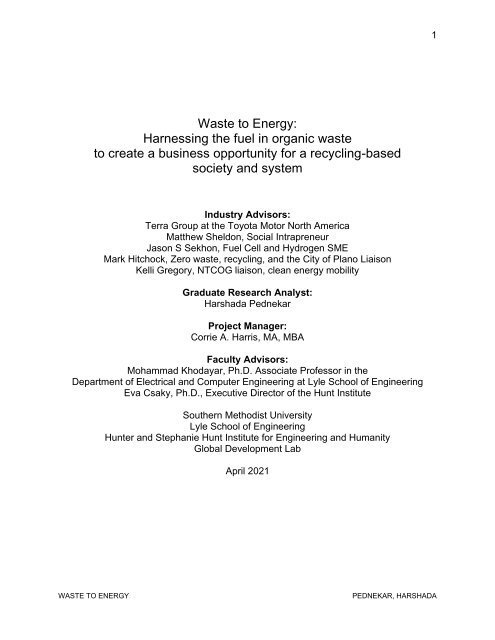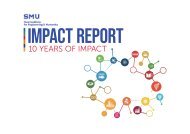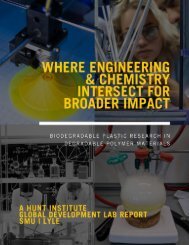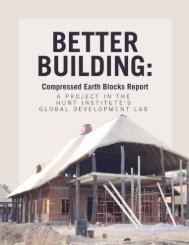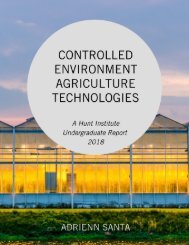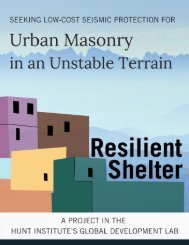Waste to Energy: Harnessing the fuel in organic waste to create a business opportunity for a recycling-based society and system
To generate a feasible amount of methane to support a digester, it is estimated that 10 to 12 tons/d, with 8-10% contamination and 80% of the contamination being bioplastics, can produce about 70 Nm3/h of biogas. This is the amount of biogas needed to produce 200 kg/day of hydrogen, which is the smallest commercially available packaged system. The greenhouse gas emission (GHG) for IngeoTM is currently 1.3 kg CO2 eq./kg polymer compared to approx. 3.2 kg CO2 eq./kg polymer for PET. Therefore, implementing anaerobic digestion for PLA can reduce around 942.5 kg - 1132 kg per day of CO2 equivalent emissions. A total of 1 ton per day of undigested bioplastic with 30% of total solids will be sent to landfills; 3 tons per day of dewatered digestate cake can be utilized for composting, and Class A fertilizer can be produced. The research on anaerobic degradation of biopolymers is still in its infancy. Therefore, this report has discussed different pre-treatment alternatives to treat PLA such as physical, chemical, and thermal treatments. This report suggests on-site segregation benefits of the current solid waste management scenario in the commercial sector of Plano, Texas. Organic waste generated from a cafeteria of the commercial sector in Plano caused an environmental impact on landfills. This report consists of a description of existing scenarios and possible pre-treatment alternatives for bioplastic degradation generated from the commercial sector. Harshada Pednekar was a graduate research analyst in the Hunt Institute while studying for a masters degree in environmental engineering from SMU's Lyle School of Engineering
To generate a feasible amount of methane to support a digester, it is estimated that 10 to 12 tons/d, with 8-10% contamination and 80% of the contamination being bioplastics, can produce about 70 Nm3/h of biogas. This is the amount of biogas needed to produce 200 kg/day of hydrogen, which is the smallest commercially available packaged system. The greenhouse gas emission (GHG) for IngeoTM is currently 1.3 kg CO2 eq./kg polymer compared to approx. 3.2 kg CO2 eq./kg polymer for PET. Therefore, implementing anaerobic digestion for PLA can reduce around 942.5 kg - 1132 kg per day of CO2 equivalent emissions.
A total of 1 ton per day of undigested bioplastic with 30% of total solids will be sent to landfills; 3 tons per day of dewatered digestate cake can be utilized for composting, and Class A fertilizer can be produced. The research on anaerobic degradation of biopolymers is still in its infancy. Therefore, this report has discussed different pre-treatment alternatives to treat PLA such as physical, chemical, and thermal treatments. This report suggests on-site segregation benefits of the current solid waste management scenario in the commercial sector of Plano, Texas. Organic waste generated from a cafeteria of the commercial sector in Plano caused an environmental impact on landfills. This report consists of a description of existing scenarios and possible pre-treatment alternatives for bioplastic degradation generated from the commercial sector.
Harshada Pednekar was a graduate research analyst in the Hunt Institute while studying for a masters degree in environmental engineering from SMU's Lyle School of Engineering
Create successful ePaper yourself
Turn your PDF publications into a flip-book with our unique Google optimized e-Paper software.
1<br />
<strong>Waste</strong> <strong>to</strong> <strong>Energy</strong>:<br />
<strong>Harness<strong>in</strong>g</strong> <strong>the</strong> <strong>fuel</strong> <strong>in</strong> <strong>organic</strong> <strong>waste</strong><br />
<strong>to</strong> <strong>create</strong> a bus<strong>in</strong>ess <strong>opportunity</strong> <strong>for</strong> a recycl<strong>in</strong>g-<strong>based</strong><br />
<strong>society</strong> <strong>and</strong> <strong>system</strong><br />
Industry Advisors:<br />
Terra Group at <strong>the</strong> Toyota Mo<strong>to</strong>r North America<br />
Mat<strong>the</strong>w Sheldon, Social Intrapreneur<br />
Jason S Sekhon, Fuel Cell <strong>and</strong> Hydrogen SME<br />
Mark Hitchock, Zero <strong>waste</strong>, recycl<strong>in</strong>g, <strong>and</strong> <strong>the</strong> City of Plano Liaison<br />
Kelli Gregory, NTCOG liaison, clean energy mobility<br />
Graduate Research Analyst:<br />
Harshada Pednekar<br />
Project Manager:<br />
Corrie A. Harris, MA, MBA<br />
Faculty Advisors:<br />
Mohammad Khodayar, Ph.D. Associate Professor <strong>in</strong> <strong>the</strong><br />
Department of Electrical <strong>and</strong> Computer Eng<strong>in</strong>eer<strong>in</strong>g at Lyle School of Eng<strong>in</strong>eer<strong>in</strong>g<br />
Eva Csaky, Ph.D., Executive Direc<strong>to</strong>r of <strong>the</strong> Hunt Institute<br />
Sou<strong>the</strong>rn Methodist University<br />
Lyle School of Eng<strong>in</strong>eer<strong>in</strong>g<br />
Hunter <strong>and</strong> Stephanie Hunt Institute <strong>for</strong> Eng<strong>in</strong>eer<strong>in</strong>g <strong>and</strong> Humanity<br />
Global Development Lab<br />
April 2021<br />
WASTE TO ENERGY<br />
PEDNEKAR, HARSHADA


